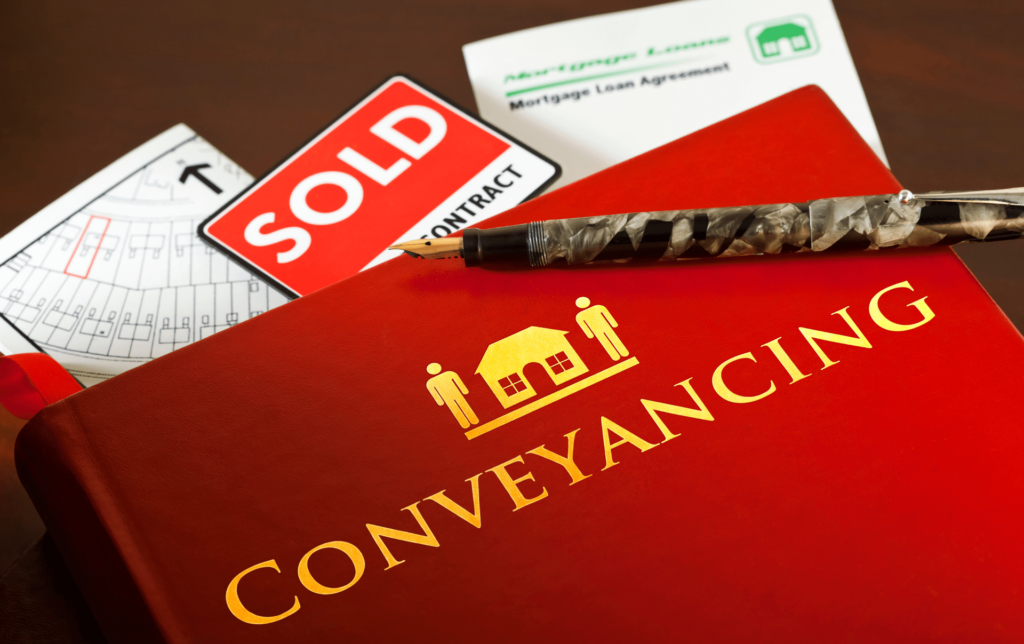In the process of buying or selling a property, one of the important aspects to consider is conveyancing fees. What exactly are conveyancing fees and how can you save money on them? This article aims to answer these questions and provide helpful tips on navigating through the world of conveyancing fees.
Understanding Conveyancing Fees
Before we delve into the intricacies of conveyancing Newcastle fees, it’s crucial to have a clear understanding of what exactly conveyancing entails. In simple terms, conveyancing refers to the legal process of transferring the ownership of a property from the seller to the buyer. This process involves various legal and administrative tasks, such as conducting property searches, preparing legal documents, and handling the financial aspects of the transaction.
When it comes to conveyancing fees, they typically consist of three main categories: legal fees, disbursement fees, and additional fees.
What is Conveyancing?
Conveyancing is the legal process involved in transferring the ownership of a property from one individual or entity to another. It includes various steps and tasks that ensure a smooth and legally valid property transaction.
During the conveyancing process, the buyer’s solicitor or conveyancer will conduct property searches to uncover any potential issues that may affect the property’s value or the buyer’s ability to use it as intended. These searches may include investigating the property’s title, checking for any outstanding debts or charges against the property, and examining any planning or building restrictions that may apply.

In addition to the searches, the buyer’s solicitor or conveyancer will also prepare legal documents, such as the contract of sale and the transfer of ownership. These documents outline the terms and conditions of the property transaction and ensure that both parties are aware of their rights and obligations.
Furthermore, the conveyancing process involves handling the financial aspects of the transaction. This includes liaising with the buyer’s mortgage lender to arrange for the release of funds, calculating and distributing the necessary payments, and ensuring that all financial obligations are met. Visit https://authorizedprocessservers.com/key-differences-between-residential-and-commercial-conveyancing to get more about differences between residential and commercial conveyancing.
Typical Costs Involved in Conveyancing
Conveyancing fees can vary depending on several factors, but there are certain costs that are typically associated with this process. These costs include legal fees, disbursement fees, and additional fees. Let’s take a closer look at each of these categories.
Legal fees are the fees charged by the buyer’s solicitor or conveyancer for their professional services. These fees can vary depending on the complexity of the transaction, the experience of the solicitor or conveyancer, and the location of the property. It’s important to obtain a clear breakdown of the legal fees upfront to understand what services are included and what additional costs may apply.
Disbursement fees are the costs incurred by the buyer’s solicitor or conveyancer for various third-party services. These services may include property searches, land registry fees, stamp duty land tax, and bank transfer fees. Disbursement fees are typically charged at cost and may vary depending on the specific requirements of the transaction.
In addition to legal fees and disbursement fees, there may be additional fees associated with the conveyancing process. These fees can include charges for additional services requested by the buyer, such as expedited searches or additional legal advice. It’s important to discuss any potential additional fees with the solicitor or conveyancer upfront to avoid any surprises.
It’s worth noting that conveyancing fees are separate from other costs associated with buying a property, such as survey fees, valuation fees, and mortgage arrangement fees. These additional costs should also be taken into account when budgeting for a property purchase.
The Breakdown of Conveyancing Fees
When it comes to buying or selling a property, one of the essential aspects to consider is the conveyancing fees. These fees cover the professional services provided by a conveyancer or solicitor throughout the transaction. Let’s take a closer look at the different components that make up the conveyancing fees.
Legal Fees
The legal fees constitute the largest portion of conveyancing fees. They are the charges levied by the conveyancer or solicitor for their professional services. These services encompass a range of tasks that are crucial to ensuring a smooth and legally compliant property transfer.
One of the key responsibilities of the conveyancer is preparing the necessary legal documents. This involves drafting contracts, transfer deeds, and any other relevant paperwork required for the transaction. These documents must accurately reflect the terms and conditions agreed upon by the buyer and seller.
In addition to document preparation, the conveyancer also conducts property searches. These searches are conducted to gather essential information about the property, such as its ownership history, any existing mortgages or liens, and any potential planning restrictions. By conducting thorough property searches, the conveyancer helps identify any potential issues or risks that may affect the transaction.

Throughout the conveyancing process, the conveyancer provides legal advice to their clients. This advice covers various aspects, including the terms of the contract, the implications of any legal clauses, and the buyer’s rights and obligations. Having access to professional legal advice is crucial for both buyers and sellers to ensure they are fully informed and protected throughout the transaction.
It’s important to note that the legal fees may vary depending on the complexity of the transaction and the experience of the conveyancer. More complex transactions, such as those involving leasehold properties or properties with unique legal considerations, may require additional expertise and therefore incur higher legal fees.
Disbursement Fees
In addition to the legal fees, there are also disbursement fees associated with the conveyancing process. These fees are the expenses incurred by the conveyancer on behalf of the buyer or seller.
One of the primary disbursement fees is the cost of conducting property searches. These searches are essential to gather information about the property and its surroundings. They typically include searches for land registry records, local authority records, environmental records, and water and drainage records. These searches help identify any potential issues or risks that may affect the property, such as planning restrictions, flood risks, or contaminated land.
Obtaining copies of documents is another disbursement fee that may be incurred. This includes obtaining copies of the title deeds, lease agreements, planning permissions, and any other relevant documents that need to be reviewed as part of the conveyancing process.
Registering the property transfer with the relevant authorities is also a disbursement fee. This involves paying fees to the land registry to update the ownership records and legally transfer the property from the seller to the buyer.
Depending on the nature of the property and the specific requirements of the transaction, there may be additional disbursement fees. For example, if the property requires specialist advice, such as environmental or building surveys, the costs associated with these surveys would be considered disbursement fees.
It’s essential to clarify with your conveyancer which disbursement fees are included in their quote to avoid any surprises. Understanding the breakdown of disbursement fees helps ensure transparency and allows you to budget accordingly.
Additional Fees
In addition to the legal and disbursement fees, there may be additional fees associated with the conveyancing process. These fees can vary depending on the circumstances of the transaction and any specific requirements.
One example of an additional fee is the bank transfer fee. This fee is incurred when funds need to be transferred between different parties involved in the transaction, such as the buyer, seller, and mortgage lender. It’s important to clarify with your conveyancer whether this fee is included in their quote or if it will be an additional cost.
If the property being sold has an existing mortgage, there may be mortgage redemption fees. These fees are charged by the mortgage lender to cover the costs associated with closing the mortgage account. It’s crucial to understand these fees upfront to avoid any unexpected expenses.
In the case of leasehold properties, there may be leasehold fees to consider. These fees are specific to leasehold properties and cover costs such as ground rent, service charges, and any other fees outlined in the lease agreement. It’s important to review the lease agreement and discuss these fees with your conveyancer to ensure you are aware of the financial obligations associated with the property.
When engaging a conveyancer, it’s crucial to discuss these potential additional fees upfront to understand the full cost implications of the conveyancing process. By having a clear understanding of the breakdown of conveyancing fees, you can budget accordingly and avoid any financial surprises along the way.

Factors Influencing Conveyancing Fees
Property Value and Location
One of the key factors that can influence conveyancing fees is the value and location of the property. Higher-value properties may have higher conveyancing fees due to the increased complexity and risk involved. Similarly, properties located in areas with specific legal or administrative requirements may also attract higher fees. It’s important to discuss these factors with your conveyancer to get a clear understanding of the potential costs.
Complexity of the Transaction
The complexity of the transaction can also impact conveyancing fees. If the property transaction involves additional legal considerations, such as shared ownership, lease extensions, or the involvement of multiple parties, the conveyancing fees may be higher. It’s crucial to provide your conveyancer with all the necessary information upfront to ensure an accurate quote.
Choosing a Conveyancer: Solicitor vs. Licensed Conveyancer
Another factor to consider when it comes to conveyancing fees is the choice between using a solicitor or a licensed conveyancer. While both professionals can handle the conveyancing process, solicitors are qualified lawyers who can provide broader legal advice, while licensed conveyancers specialize solely in conveyancing. The fees charged by solicitors and licensed conveyancers may vary, so it’s essential to consider your specific needs and budget when making this decision.
How to Save on Conveyancing Fees
Shopping Around for the Best Rates
One of the most effective ways to save money on conveyancing fees is to shop around and compare quotes from different conveyancers. By obtaining multiple quotes, you can ensure you are getting a competitive rate. However, it’s important not to solely focus on the price. Consider the reputation, experience, and customer reviews of the conveyancers before making your final decision.
Negotiating Conveyancing Fees
Don’t be afraid to negotiate the conveyancing fees with your chosen conveyancer. Depending on the specifics of your transaction, there may be room for negotiation. It’s worth discussing your budget and expectations with the conveyancer to see if they can accommodate your needs. Remember, it never hurts to ask!
DIY Conveyancing: Is it Worth it?
Saving money on conveyancing fees may be tempting, but it’s essential to carefully consider whether DIY conveyancing is the right option for you. While it may save you money in the short term, the legal complexities involved in property transactions can be overwhelming and may lead to costly mistakes. Hiring a professional conveyancer provides peace of mind and ensures a smooth and legally compliant transaction.
In conclusion, navigating conveyancing fees can seem daunting, but with a clear understanding of the different costs involved and the factors influencing these fees, you can make informed decisions. By shopping around, negotiating fees, and seeking professional advice, you can save money on conveyancing fees without compromising on the quality and accuracy of the transaction. Remember, buying or selling a property is a significant financial decision, so it’s worth investing in the expertise of a trusted conveyancer to ensure a successful outcome.
